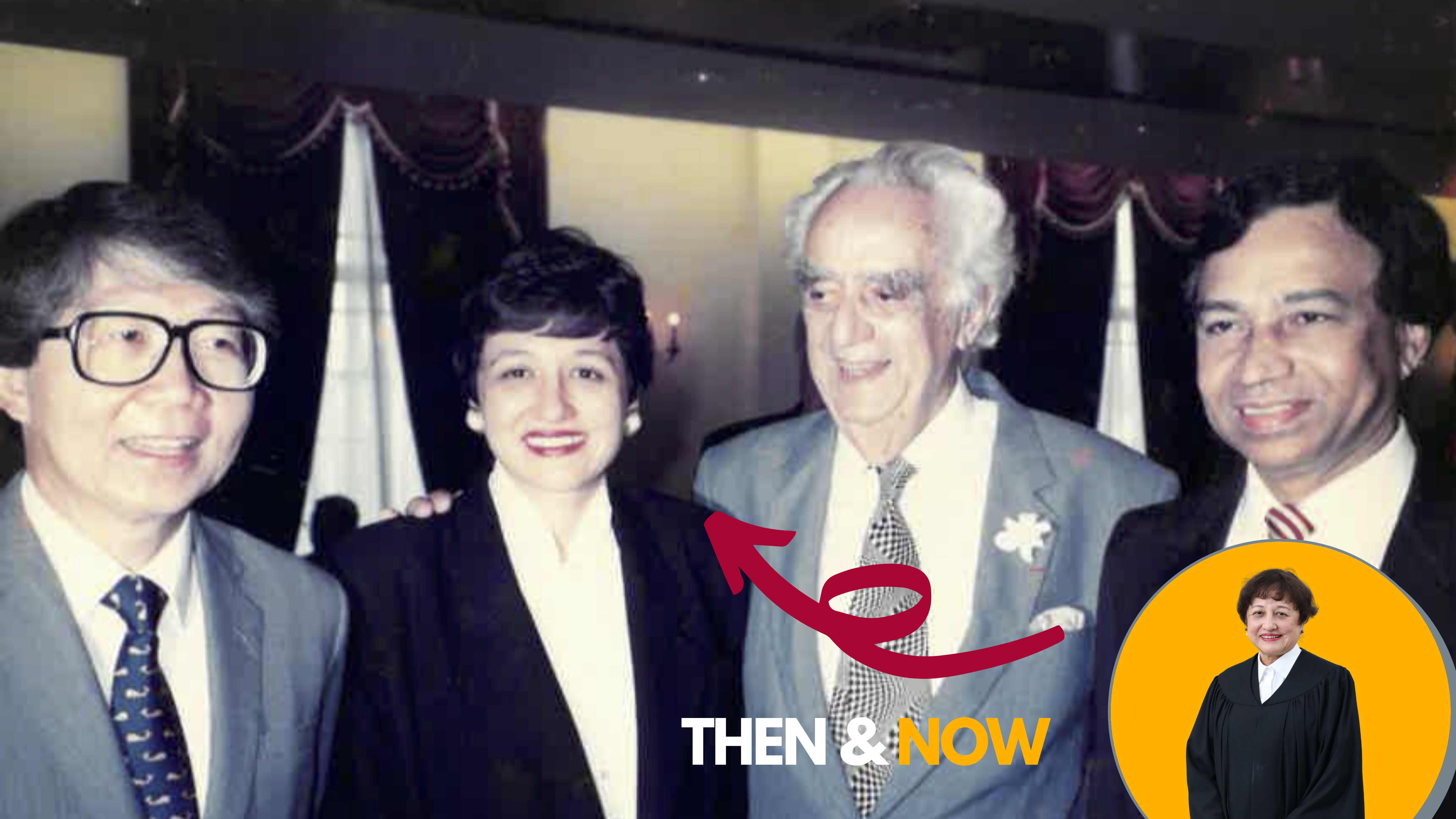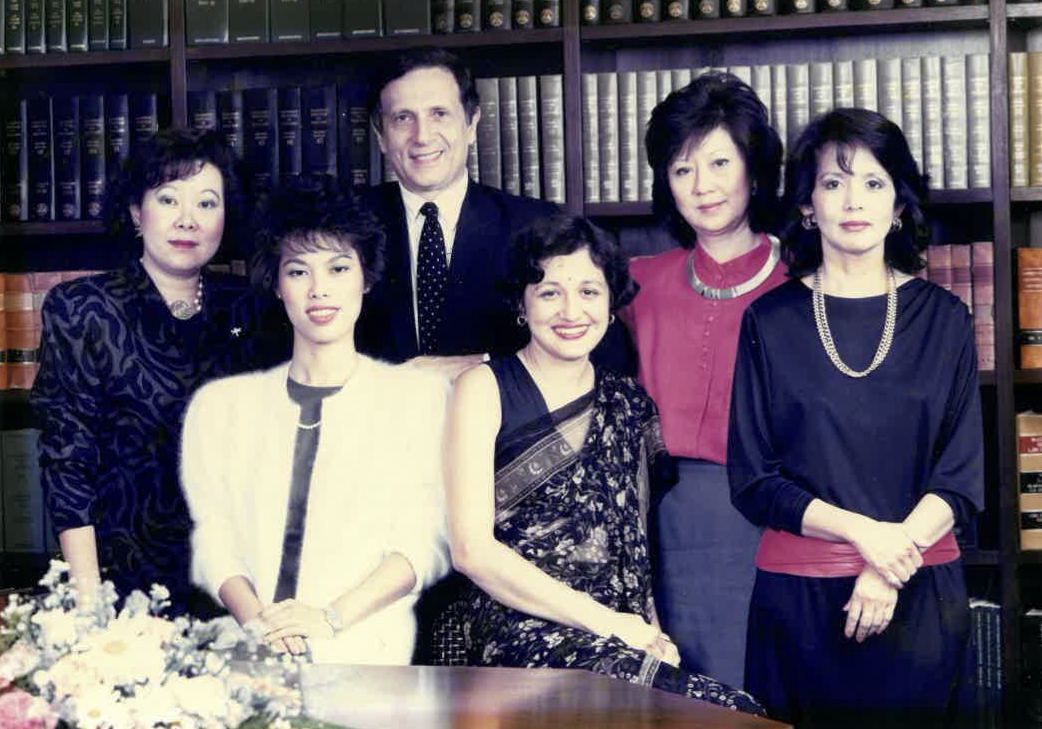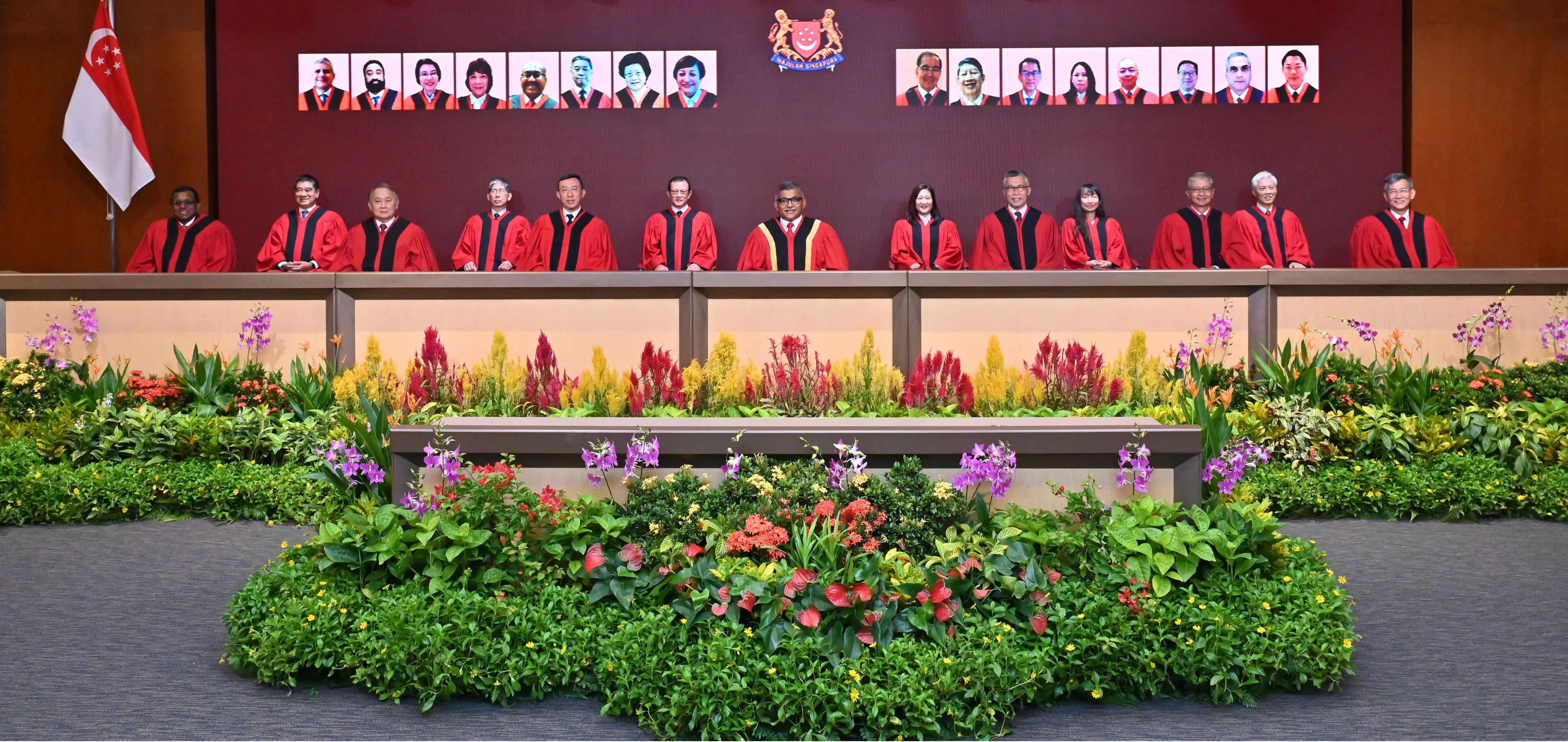In Conversation with: Justice Judith Prakash
In Conversation with: Justice Judith Prakash
Insight MinLaw goes behind the scenes to uncover stories about how the work we do impacts you.
On 24 May 2021, we marked the 60th Anniversary of the Women’s Charter in Singapore, a primary piece of legislation in our history books that governs the rights of women in Singapore. With 2021 dedicated as the Year of Celebrating SG Women, we celebrate the achievements and contributions of our SG women, and how they have shaped every aspect of our society into what it is today. This story features a legal trailblazer and key figure in Singapore’s growth as a global arbitration hub, Justice Judith Prakash.
The first woman to be appointed a permanent judge of the Singapore Court of Appeal, Justice Prakash has been on the High Court Bench since 1992 and dealt primarily with commercial cases, with a concentration on arbitration law. Her journey in the legal industry began in private practice, with a specialisation in shipping law and commercial law – but that was not what she took on in the very beginning.
What made her decide to make the switch? Insight MinLaw speaks to Justice Prakash on her career, the progress of women’s rights, and she also shares some tips for younger women in Singapore.
 A photograph taken in the early 1990s when Justice Prakash was serving as Judicial Commissioner. It was taken in the restaurant of the Academy of Law, then in City Hall. From left: Prof Tommy Koh who was dean of the NUS Faculty of Law when Justice Prakash was a law student, Justice Judith Prakash, Mr David Marshall who was her pupil master and a legal giant, and Justice MPH Rubin whom Justice Prakash first got to know during her pupillage as he was then working with David Marshall. (Credit: Justice Prakash)
A photograph taken in the early 1990s when Justice Prakash was serving as Judicial Commissioner. It was taken in the restaurant of the Academy of Law, then in City Hall. From left: Prof Tommy Koh who was dean of the NUS Faculty of Law when Justice Prakash was a law student, Justice Judith Prakash, Mr David Marshall who was her pupil master and a legal giant, and Justice MPH Rubin whom Justice Prakash first got to know during her pupillage as he was then working with David Marshall. (Credit: Justice Prakash)
Insight MinLaw: Looking back, as a budding lawyer, what made you choose to specialise in shipping and commercial law? Would you make the same choice today?
To be honest, I didn’t set out to do it.
The start of my career was rather eclectic. I did my pupillage under David Marshall and as you know, he was the leading criminal advocate of the day. In fact, one of the top advocates overall in Singapore at the time. After assisting on some criminal cases however, I realised that I was not cut out for the field.
I then became a legal assistant at Chor Pee & Hin Hiong, at the time a young and growing commercial firm. As the junior-most lawyer there, I handled a miscellany of cases, including debt collection and other small claims, tenancy disputes, traffic offences and family law matters (mainly divorce and custody applications). My first experience as an advocate was in a Magistrate’s Court defending a client charged with drunken driving – he was convicted! I also appeared in the District Courts in civil matters, though I cannot remember the details of those cases.
After a year of this type of work, I realised I needed to specialise in order to increase my expertise. I joined Drew & Napier’s shipping department, filling a position vacated by my fiancé who had to go into the army.
 A photograph taken at Drew and Napier in the late 1980s showing the senior partner Mr Joseph Grimberg with the women partners of the firm. From left: Ms Tan Bee Lian, Ms Chua Bee Lan, Justice Judith Prakash, Dr Thio Su Mien, and Mrs Murgiana Haq. (Credit: Justice Prakash)
A photograph taken at Drew and Napier in the late 1980s showing the senior partner Mr Joseph Grimberg with the women partners of the firm. From left: Ms Tan Bee Lian, Ms Chua Bee Lan, Justice Judith Prakash, Dr Thio Su Mien, and Mrs Murgiana Haq. (Credit: Justice Prakash)
That was how it unfolded. It was fortuitous. It was a career changing decision for a few reasons. First and foremost, I had an excellent mentor in the form of the head of the department, Mr GP Selvam, later Justice GP Selvam. He was not only an expert in the field, but also a lawyer who really loved the law and kept on learning it and thinking about it throughout all the years we worked together. I enjoyed the challenges posed by shipping disputes which were both intellectual and intensely practical. There were some clients who found it difficult to accept that a young woman was working in the rather rough shipping environment but on the whole, people were polite and co-operative. I was protected to an extent though – I was not assigned to deal with what could have been more risky situations for a woman, like boarding ships at sea to take collision statements where I would have been the only woman in the vicinity.
If I were a budding lawyer today, my journey probably would not be that different. I believe that doing a variety of work in your early days helps you learn what you like and would want to do for an extended period. It also exposes you to the different types of skills needed for different kinds of work.
Insight MinLaw: What does it mean to you to be the first woman to hold the post of a permanent Judge of Appeal of the Court of Appeal?
I am extremely honoured to be holding this position. I am always conscious of the necessity to carry out my duties impartially, diligently and to the best of my ability. Inspired as a young lawyer by the example set by dynamic women, legal academics and lawyers like Dr Thio Su Mien, Mrs Tan Sook Yee and Ms Phyllis Tan, I saw no reason that women could not carry out judicial duties. In the 1970s when I started practice, however, there was only one female judicial officer – the formidable District Judge Jenny Lau. It seemed, at that time, a career option that was closed to women. It took 20 years before Justice Lai Siu Chiu made history as the first woman elevated to the bench of the Supreme Court in 1991.
For decades, Singapore has had capable women in the legal profession who would have discharged the duties of the office with distinction, so in my view, this appointment was long overdue. Today, the gender ratio in the State Courts is about 50:50 and about 25% of the Supreme Court Bench is female. Full credit for these changes must be given to Chief Justice Yong Pung How who was gender blind in his recognition of merit and, indeed, recognised the potential of many young women lawyers who are now leaders in the Judiciary, the Legal Service and private practice.
Insight MinLaw: Do you have any words of advice for the younger generation of Singaporean women?
People who experience structural inequities in the workplace, such as women, ethnic minorities, and people with disabilities, have always had to identify ways to be successful without the resources available to the more privileged groups, and studies have shown that they have succeeded. Just the fact of being a woman should not stop anybody from pursuing their ambitions. However, you always have to be conscious of the choices that you make and be able to be comfortable with them. With technology, the boundaries between work and home life have blurred more and more over the decades and that has made separating work life and family more difficult. Things are more dynamic now, and it can be hard to stop checking your phone for messages from your client or boss even when having a meal with your loved ones. But you must. Because the mental break from work is what will allow you to be more effective and present when you are there.
It is also important for women to network and support each other to advance their place in society. We are the ones who are most concerned that our abilities and needs be recognised, and we thus have the most impetus to bring about change. As mothers, sisters, daughters, wives and friends, women have enormous opportunities to change the gender-based attitudes of the men and boys in their lives. As a young practitioner, I was one of the early members of the Singapore Association of Women Lawyers (SAWL). While I found it very satisfying to work with women like Farideh Namazie and Anamah Tan to provide legal knowledge to people who had little access to lawyers, my interactions with them and others, equally significantly, provided me with a support group when I needed advice and a sounding board. As we become more successful, we should do our best to mentor younger women as well.
 This year’s Opening of the Legal Year which was held virtually and at the State Courts – two firsts in our history books. (Credit: State Courts)
This year’s Opening of the Legal Year which was held virtually and at the State Courts – two firsts in our history books. (Credit: State Courts)
Insight MinLaw: Sixty years on, how do you think the Women’s Charter has contributed to the advancement of women’s rights in Singapore?
In my view, the Women’s Charter is a pivotal and fundamental piece of legislation in relation to the rights of women in our society. Although many sections in the Charter were re-enactments of existing laws on the status of women, there was a special force that came from all these rights being contained in one piece of legislation.
From its inception, the Charter recognised women as the full equals of men, not only in their roles as citizens and fully functioning members of society, but also in the domestic sphere. The rights and duties of men and women as spouses and parents were put on equal levels. The abolition of polygamous marriage was also a big step signalling that women’s role in marriage was no longer subordinate. Section 45 of the Charter not only prescribed that the spouses were mutually bound to care for the union and the children, but it also made it clear that the husband and wife had equal say in the running of the matrimonial household. The ability of women to retain their maiden names on marriage may have been only symbolic for many but it was an important recognition of their continuing legal personhood throughout their lives. The provisions I have mentioned were in the Charter from the outset, but the legislation continued to evolve partly by legislative action and partly by judicial interpretation.
Over the years, the law has given even greater recognition to the role each spouse plays in a marriage and in the care of the children so that all parties can be treated more equitably in the event of a disagreement or dysfunction. As we build on the Charter, I am confident that this legislation will be more fully appreciated by all as setting the foundation for respect and good relations between men and women in our community.
About the Women’s Charter
Enacted in 1961, the Act serves to protect and advance the rights of women and girls in Singapore. The Women’s Charter provides for:
● Solemnization of marriages;
● Registration and dissolution of civil marriages;
● Rights and duties of married persons;
● Maintenance of wives and children;
● Protection of family; and
● Penalties for offences against women and girls
Amendments have been made to the Charter over the years to ensure its continuing relevance as our society changes.
Last updated on 28 May 2021
Other stories you may like:
In Conversation with: Dean Leslie Chew
Time to Suit Up, Paralegals

